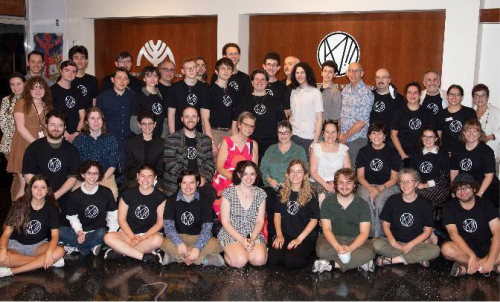YIVO During WWII
World War II spelled the end of YIVO's existence in Europe. Early in the war, the Soviets occupied Vilna and absorbed YIVO into the Institute of Lithuanian Studies. In 1941, Vilna was occupied by the Nazis. The Jews of Vilna were confined to a ghetto and by the end of 1943, most of them were murdered, either in the nearby Ponary forest or after deportation to death camps.
A special unit, known as the Einsatzstab des Reichsleiter Alfred Rosenberg, or Rosenberg Squad, plundered YIVO and other Jewish libraries for treasures the Nazis hoped to use in a Frankfurt-based "Institute for the Study of the Jewish Question." All of YIVO's remaining books, documents, and artifacts—including many extremely rare items—were to be shredded in paper mills.
The Jews assigned by the Nazis to sort through the archival and library materials risked their lives to hide rare artifacts. Calling themselves "the Paper Brigade," they smuggled books and papers to hiding places in the Jewish ghetto and the homes of friendly non-Jews. They concealed documents under floorboards and in walls and buried them in secret underground bunkers.
Some members of the Paper Brigade were also members of the Vilna ghetto's Jewish resistance organization. They saw the rescue of Jewish cultural treasures as no less a holy mission than that of mounting an armed uprising against the Nazis.
Meanwhile, YIVO director Max Weinreich, who had been on a trip outside Poland at the start of World War II, had managed to temporarily reestablish YIVO in new headquarters in New York. As the war drew to a close, and the magnitude of the Nazi genocide was revealed, it became clear that the relocation of YIVO to the United States would be permanent.

